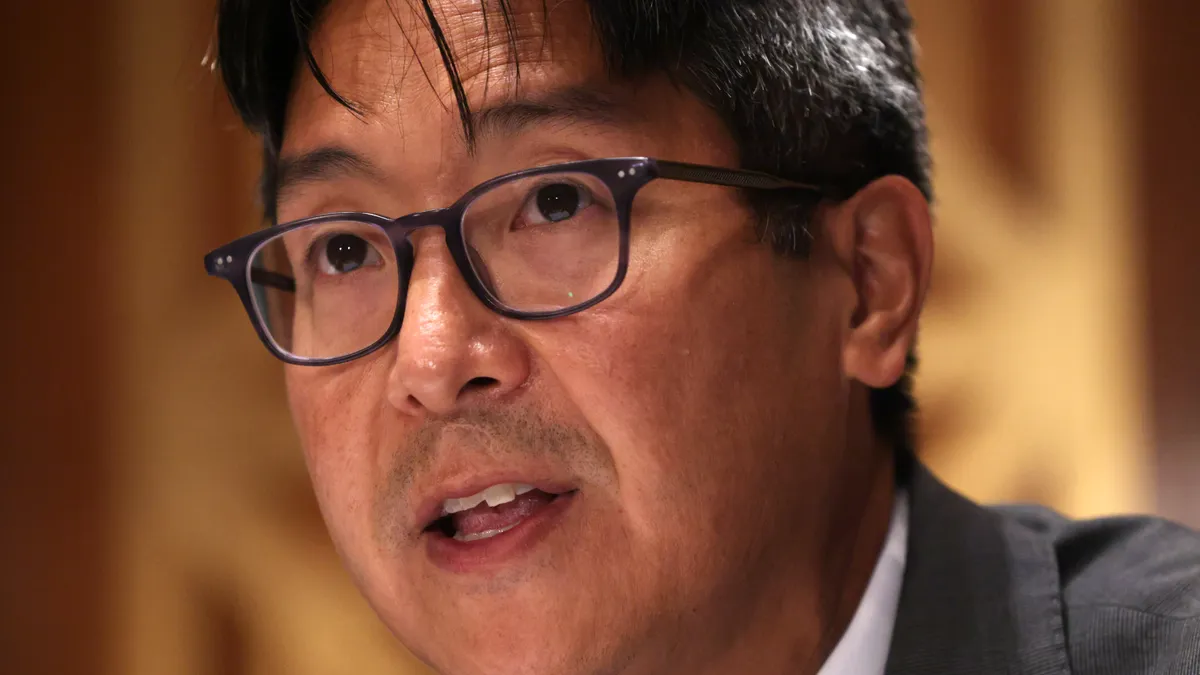Crypto companies need a consolidated supervisor and a global regulatory framework to mitigate risk, Acting Comptroller of the Currency Michael Hsu told bankers Monday at a Washington conference.
Until such a framework is established, crypto companies with international subsidiaries “will be able to arbitrage local regulations and potentially play shell games using interaffiliate transactions to obfuscate and mask their true risk profiles,” Hsu said.
The need for crypto regulation has steadily gathered steam since late 2021, but has particularly escalated since the spectacular collapse of crypto exchange FTX and its more than 130 international subsidiaries in November.
Hsu compared FTX’s collapse to the failure of the Bank of Credit and Commerce International in 1991, which the Los Angeles Times, at the time, called “history’s biggest bank fraud scandal.”
Prior to its closure, BCCI had $23 billion in assets and 380 offices across 72 countries. Four of its subsidiaries operated in the U.S. Although BCCI was subject to some local host regulations, there was no lead regulator overseeing the whole enterprise.
“This meant that the supervision of BCCI was highly fractured, and no single supervisor had a clear picture of BCCI’s consolidated activities,” Hsu said. “To make matters worse, BCCI’s parent holding company was not subject to supervision in the jurisdiction in which it was chartered, enabling the bank to engage in interaffiliate transactions that facilitated money laundering and obfuscated its true financial condition for years.”
Ultimately, its billions of dollars in losses led to “significant changes in how global banks are supervised,” Hsu noted Monday.
Although BCCI was a bank and FTX is a crypto exchange, their similarities are numerous, he said. Both faced fragmented supervision, lacked a “home” regulator, operated across jurisdictions without an established framework for regulators to share information on the firm’s operations, and used multiple auditors to make sure that no one had a holistic view of their operations, Hsu said.
“As a result, BCCI and FTX were able to ... operate with a stunning lack of basic risk management and internal controls for an extended period of time, despite being ‘regulated,’” Hsu said. “By seemingly being everywhere and structuring entities in multiple jurisdictions, they were effectively nowhere and were able to evade meaningful regulation.”
Hsu added that “not all global crypto players” will mask their risk profiles.
“But we won’t be able to know which players are trustworthy and which aren’t until a credible third party, like a consolidated home country supervisor, can meaningfully oversee them,” he said, adding that no crypto platforms are currently subject to consolidated supervision.
Hsu also beat back the notion that crypto could replace the traditional banking system, as Bitcoin inventor Satoshi Nakamoto surmised was possible in his white paper in 2008. Crypto has served primarily as an alternative asset class, Hsu said, with trading dominating user activity.
Intermediaries, Hsu said, are “required for crypto to operate at any scale.”
“The events of the past year have shown that trust in those intermediaries can be quickly lost, large numbers of individuals can be hurt, and knock-on effects to the traditional financial system can result,” Hsu said.














